Best Motorola phones 2026
From budget options to foldables, Motorola has it all.
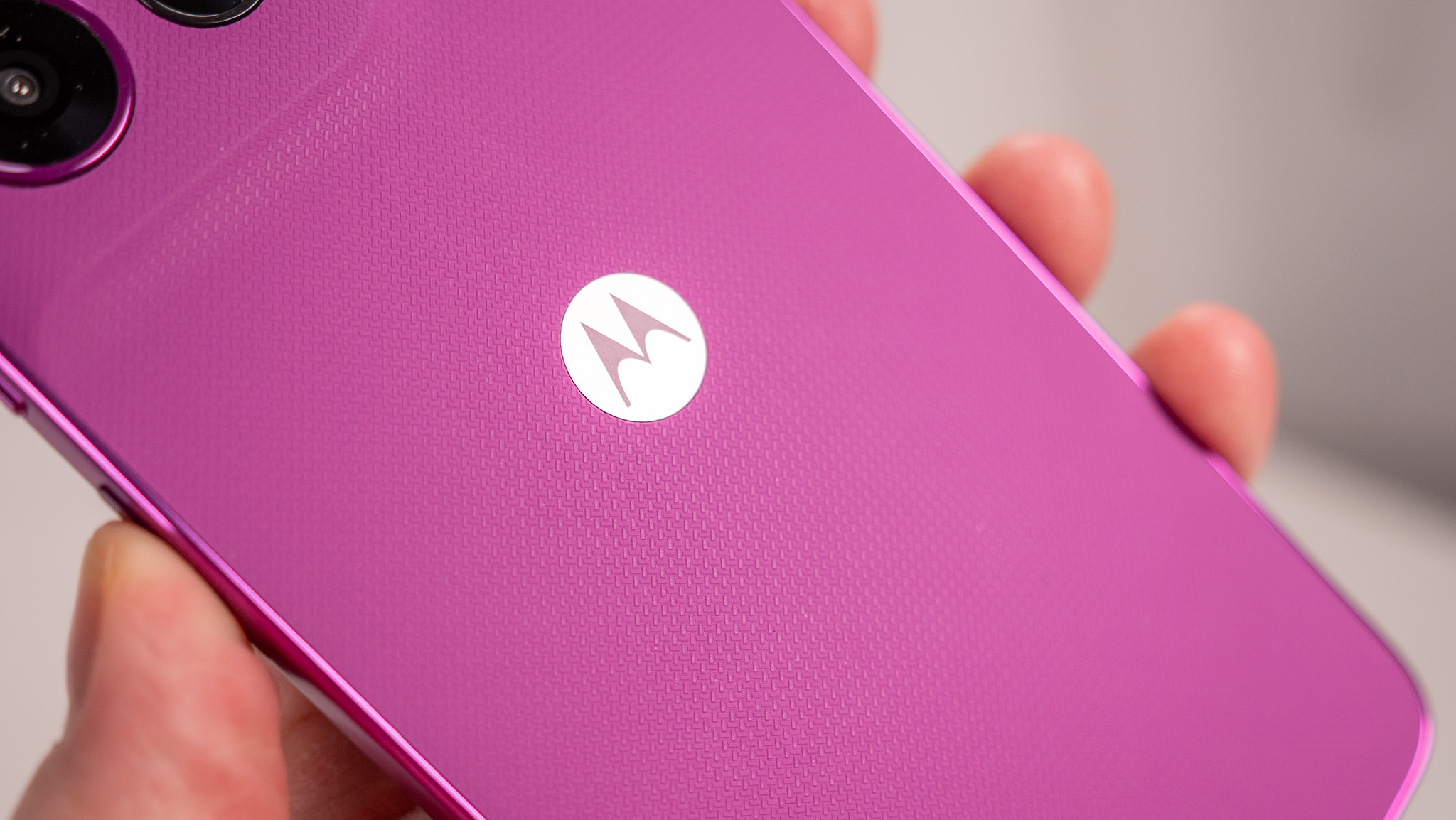
At a glance
1. Best overall
2. Best stylus phone
3. Best value
4. Best foldable
5. Best for productivity
6. Best battery life
7. Best value foldable
8. Best cheap Moto
How to choose
Motorola's smartphone offerings offer great value, be it its flagship Razr series or budget G series. Compared to the competition, nearly all of its phones pack in a few features that are well above their price segment. Whether it's extreme waterproofing like an IP69 rating or a really fluid display with a 144Hz refresh rate, Motorola offers it all.
Our best overall pick is the Motorola Edge 2025. Sure, it's not the best Edge series phone Motorola has built, and it's a bit overpriced right now in the U.S., but it can be a good buy if you can find one on sale. Of course, there are plenty of other options if the Edge (2025) doesn't work for you, so keep reading to see all of our favorite Motorola picks.
At a glance
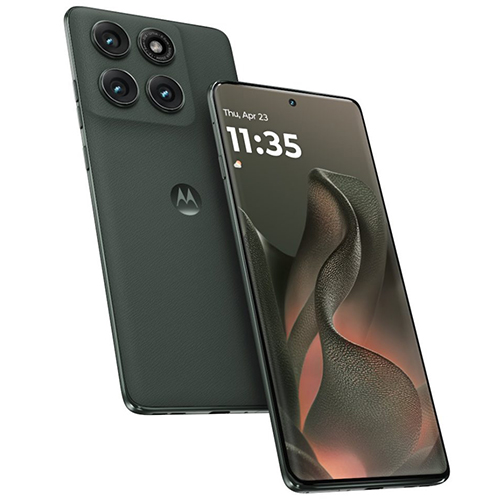
Best overall
The Motorola Edge 2025 is a little pricey in the U.S. for what it offers, but it's a much better upgrade to the 2024 model. You get Android 15, a telephoto camera, and an IP68/ IP69 rating for dust and water resistance.
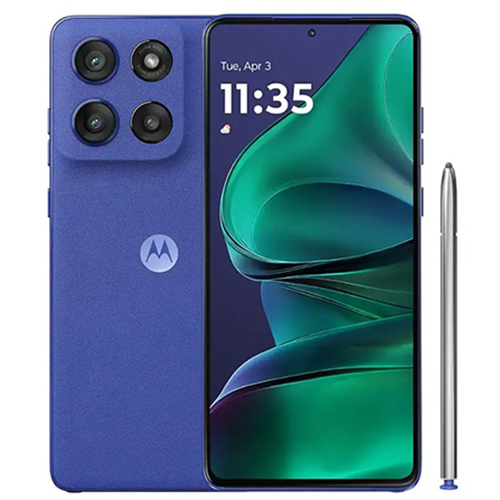
Best stylus phone
With the newest Moto G Stylus 2025, Motorola once again proves that a well-made and feature-packed smartphone, that too with a built-in stylus, doesn't have to cost a fortune. It has a gorgeous vegan leather back panel, a brighter display, an IP68 rating, and way faster charging.
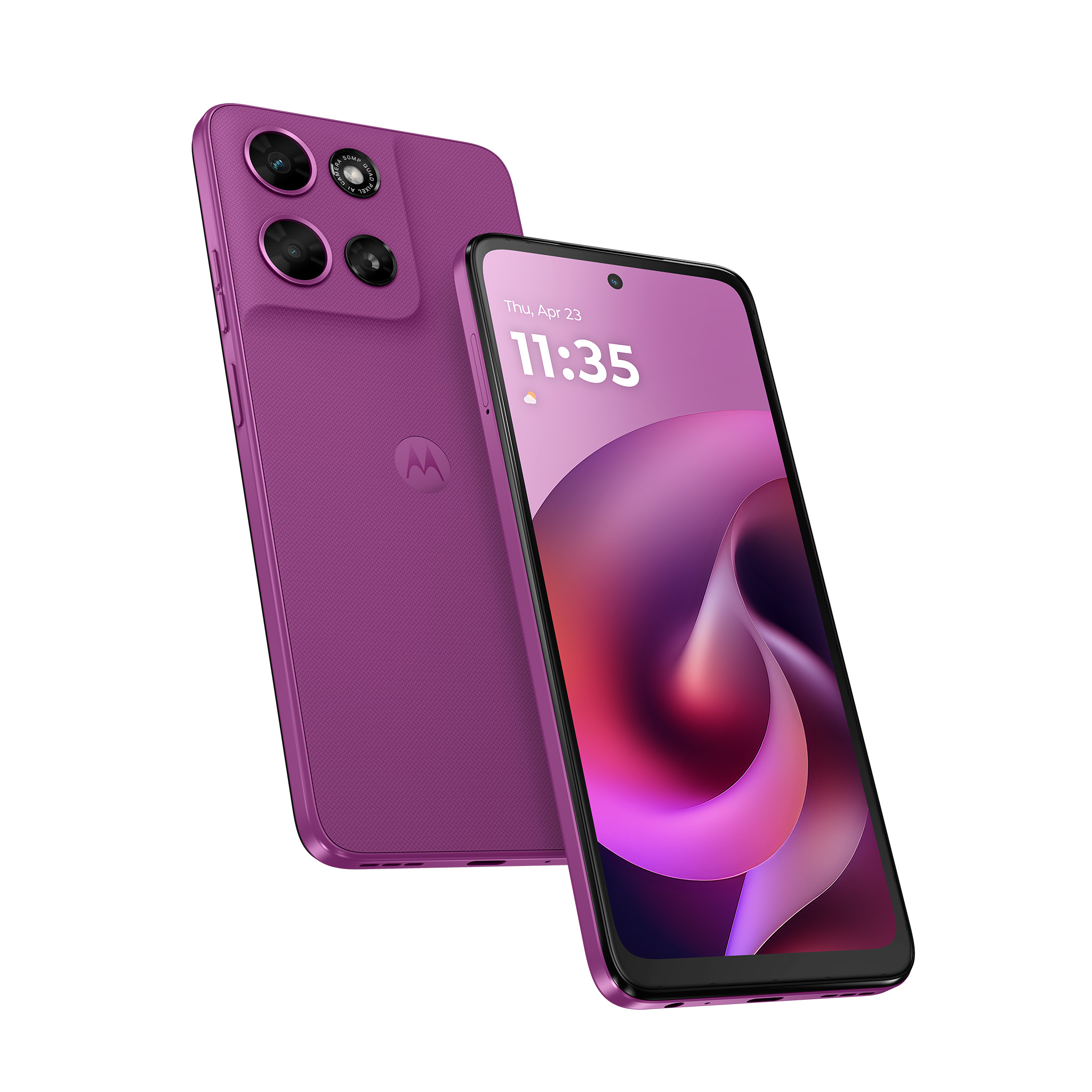
Best value
If you're looking to keep the costs low, the Moto G 2026 is a solid choice. This smartphone packs 5G, a 120Hz display, Android 16, and 30W wired charging—all under $200.
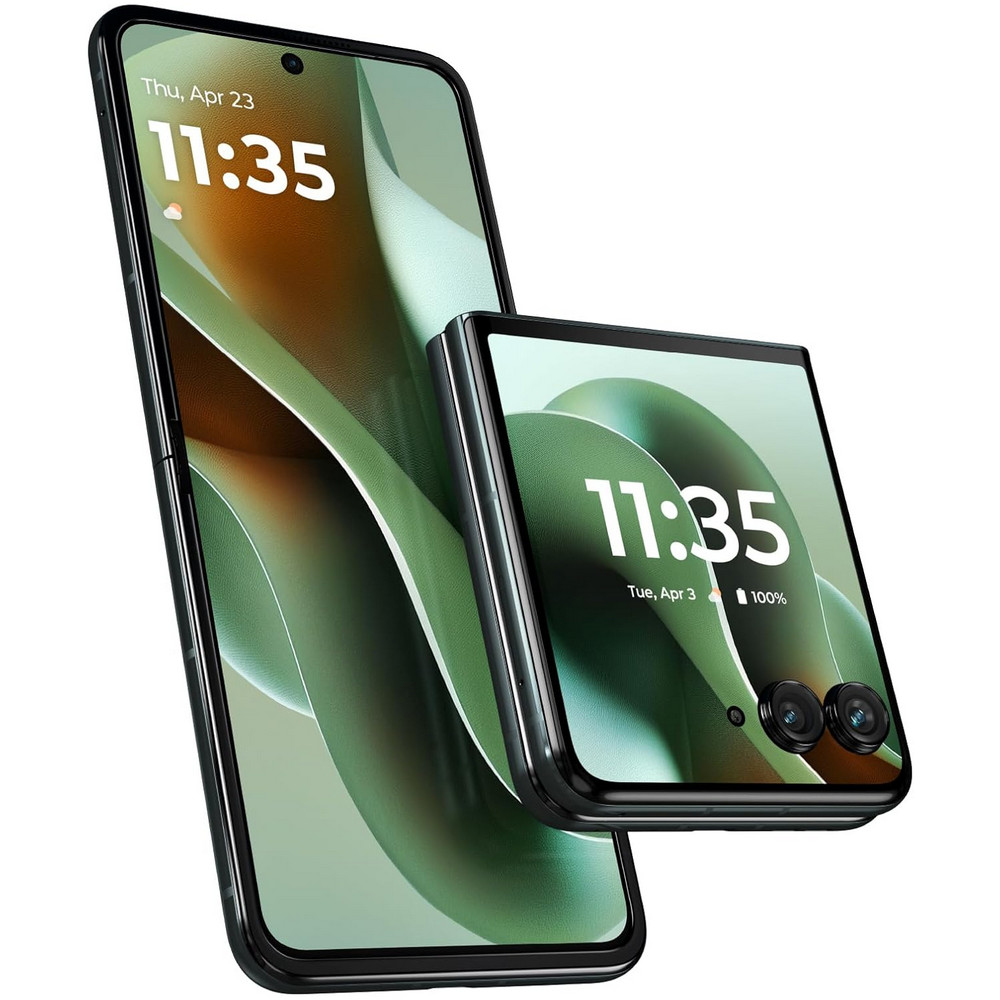
Best foldable
The Motorola Razr Ultra 2025 is the latest flagship foldable with the price to match. It's the most powerful foldable out there at the moment, and it even gets an IP48 rating, a dedicated AI button, and super-fast wired and wireless charging.
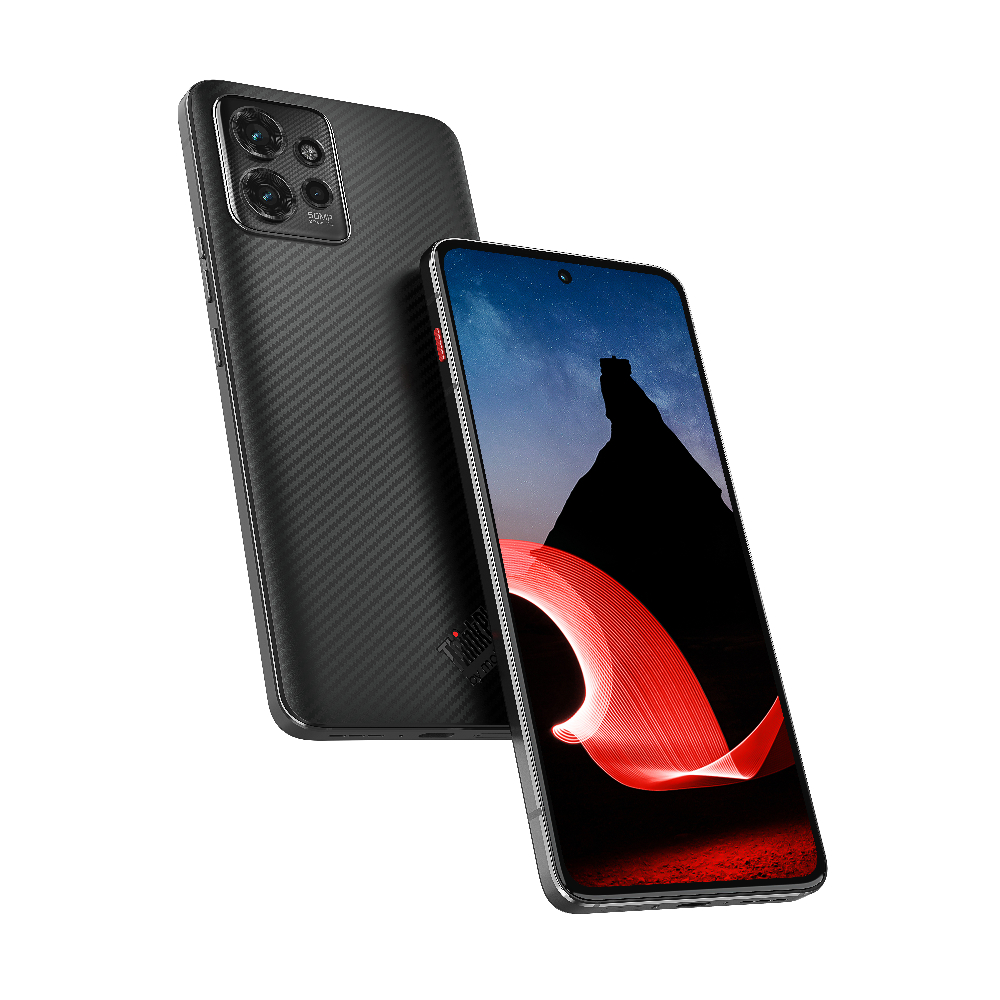
Best for productivity
The Motorola ThinkPhone is clearly targeted at business users, and the carbon fiber design combined with Red accents makes it go extremely well with your ThinkPad like no other device can. It has a great display, a Qualcomm Snapdragon 8+ Gen 1 SoC, a well-rounded primary camera setup, and a big battery with both wired and wireless charging.
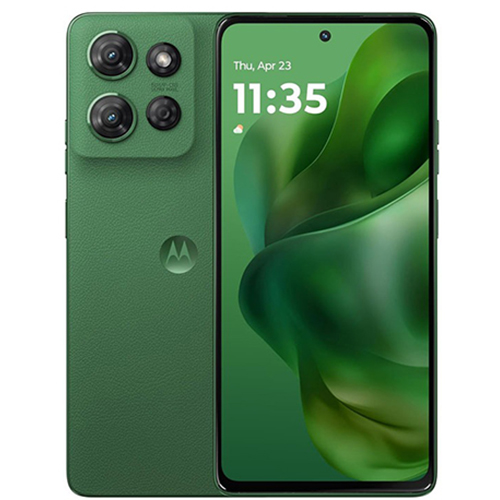
Best battery life
The Moto G Power 5G is an absolute endurance champion with a 5,000mAh battery that, when combined with the efficient MediaTek Dimensity 7020 SoC, can easily go on for multiple days on a full charge. You also get practical features such as a microSD expansion slot, clean Android experience, and wired and wireless charging.
Load the next 2 products ↓
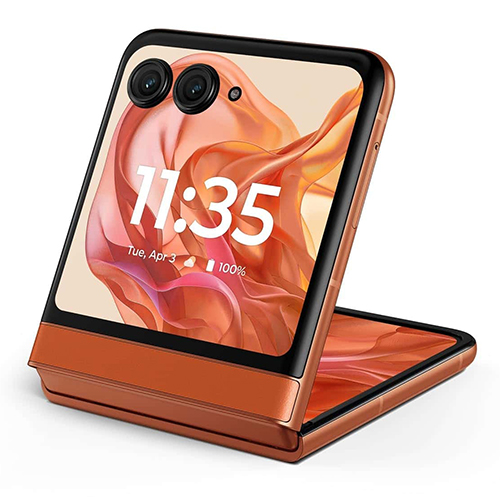
Best value foldable
The base Moto Razr 2025 is a new addition that gets IP48 dust and water resistance, a stronger titanium hinge, and new colors. The processor has also been bumped up and the phone ships with Android 15.
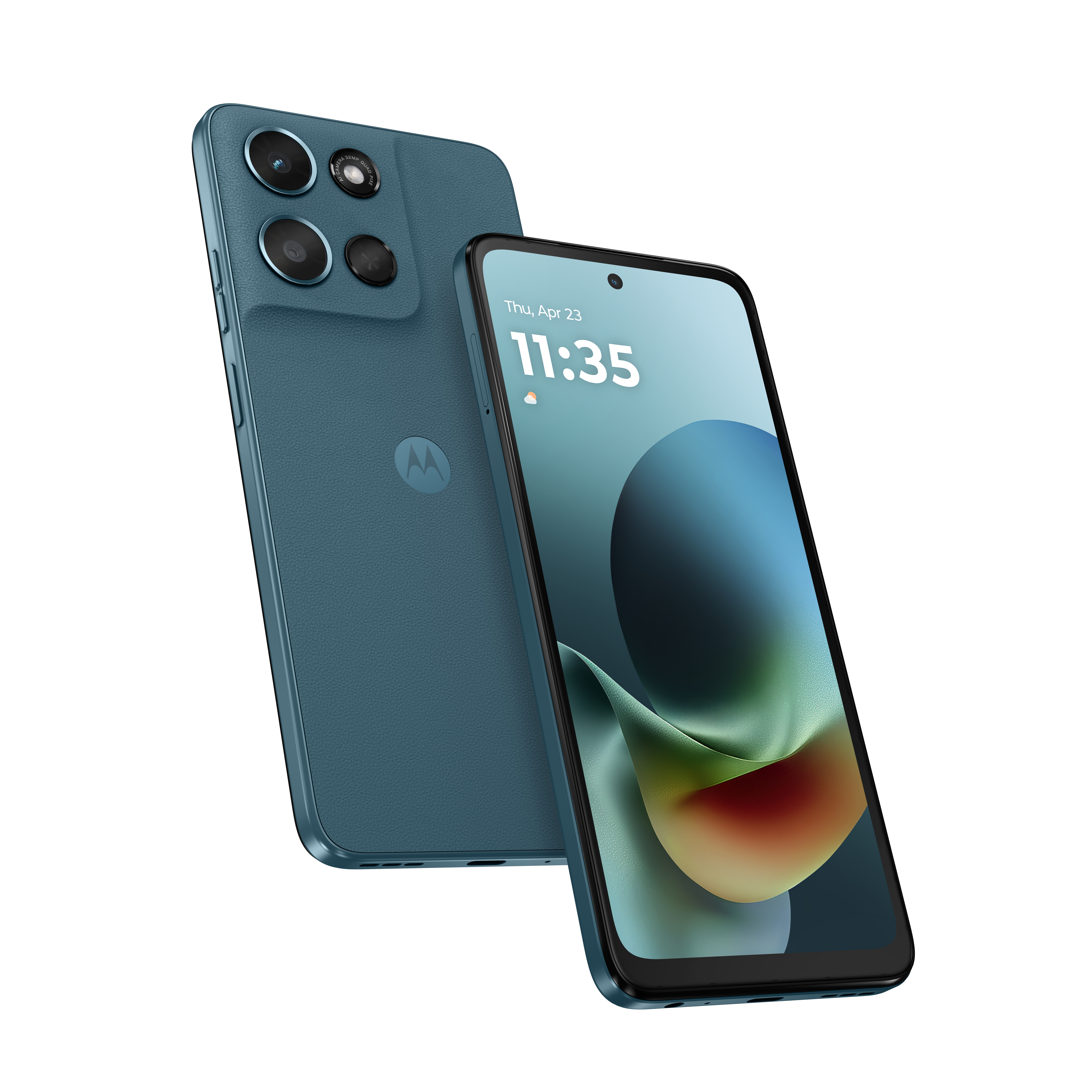
Best cheap Moto
Available for just $179, the Moto G Play 2026 defies its extremely affordable price by offering 5G and the same SoC found in a $300 Moto phone. You can expect two-day battery life, modern design, and even a few AI features.
Best overall
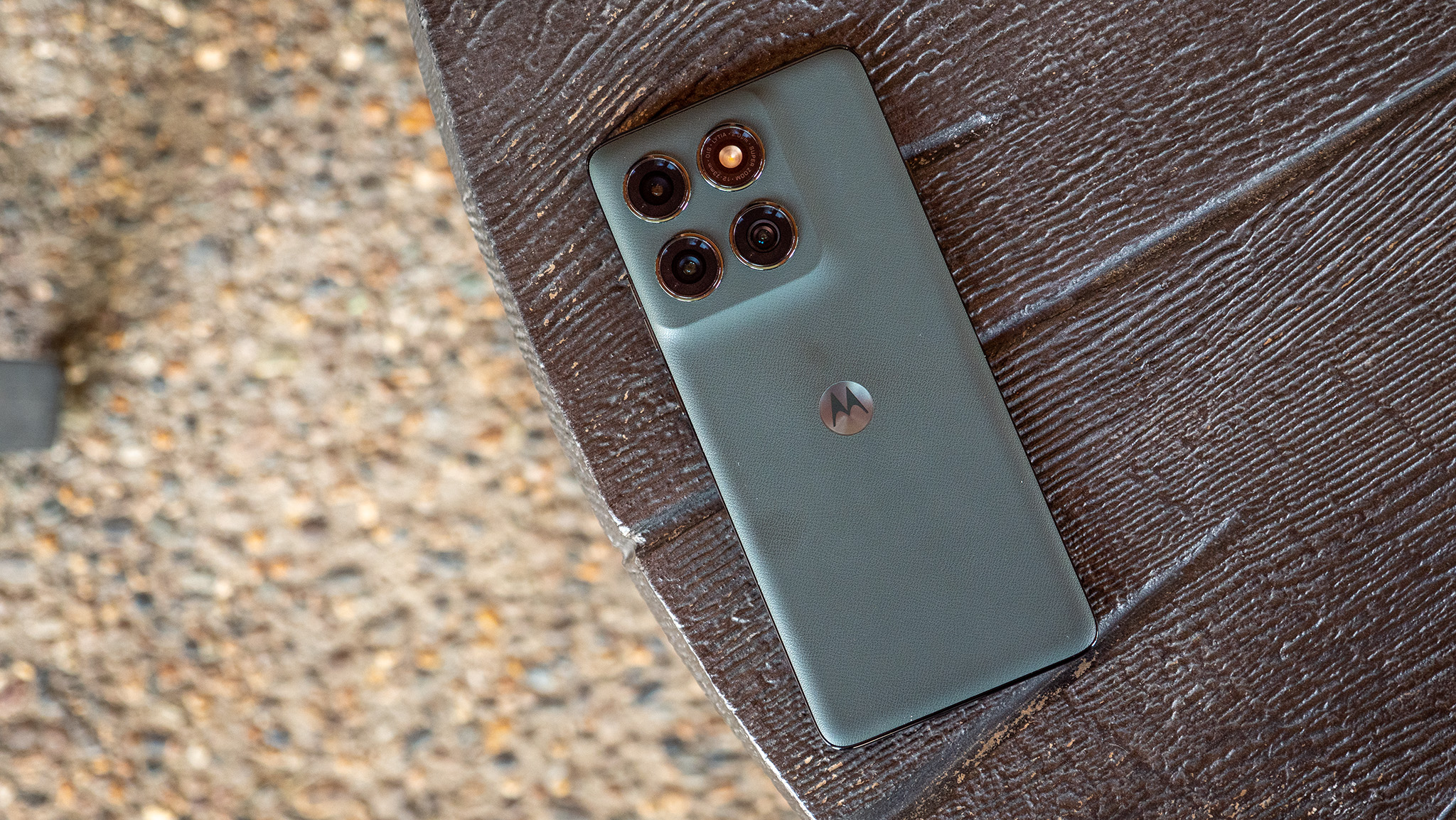
Specifications
Reasons to buy
Reasons to avoid
Motorola has been stumbling a bit with its Edge series of phones for the past few generations and while the 2025 Motorola Edge is far from perfect, it's a step in the right direction. The telephoto camera makes a comeback, and the new model is slim and light. It's more expensive than the 2024 Edge but you now get IP68/ IP69 rating for dust and water resistance.
The display is superb and produces punchy colors and sharp text. For some reason, Motorola has reduced the refresh rate from 144Hz in the older model to 120Hz. The latter is still plenty for gaming and everyday use, and we have a much brighter display this time with the Edge 2025 hitting peak levels up to 4,500 nits. There's sturdier Gorilla Glass 7i over the display and a pleasing faux-leather back panel.
The MediaTek Dimensity 7400 Ultra SoC is probably the weakest link here. It's alright for regular workloads but the performance can feel sluggish at times. The cameras are an improvement over the 2024 Edge model, which is good news. Battery life is excellent thanks to the large 5,200mAh capacity and charging speeds are quick. The Edge 2025 ships with Android 15, but it will be getting just two OS upgrades.
Best stylus phone
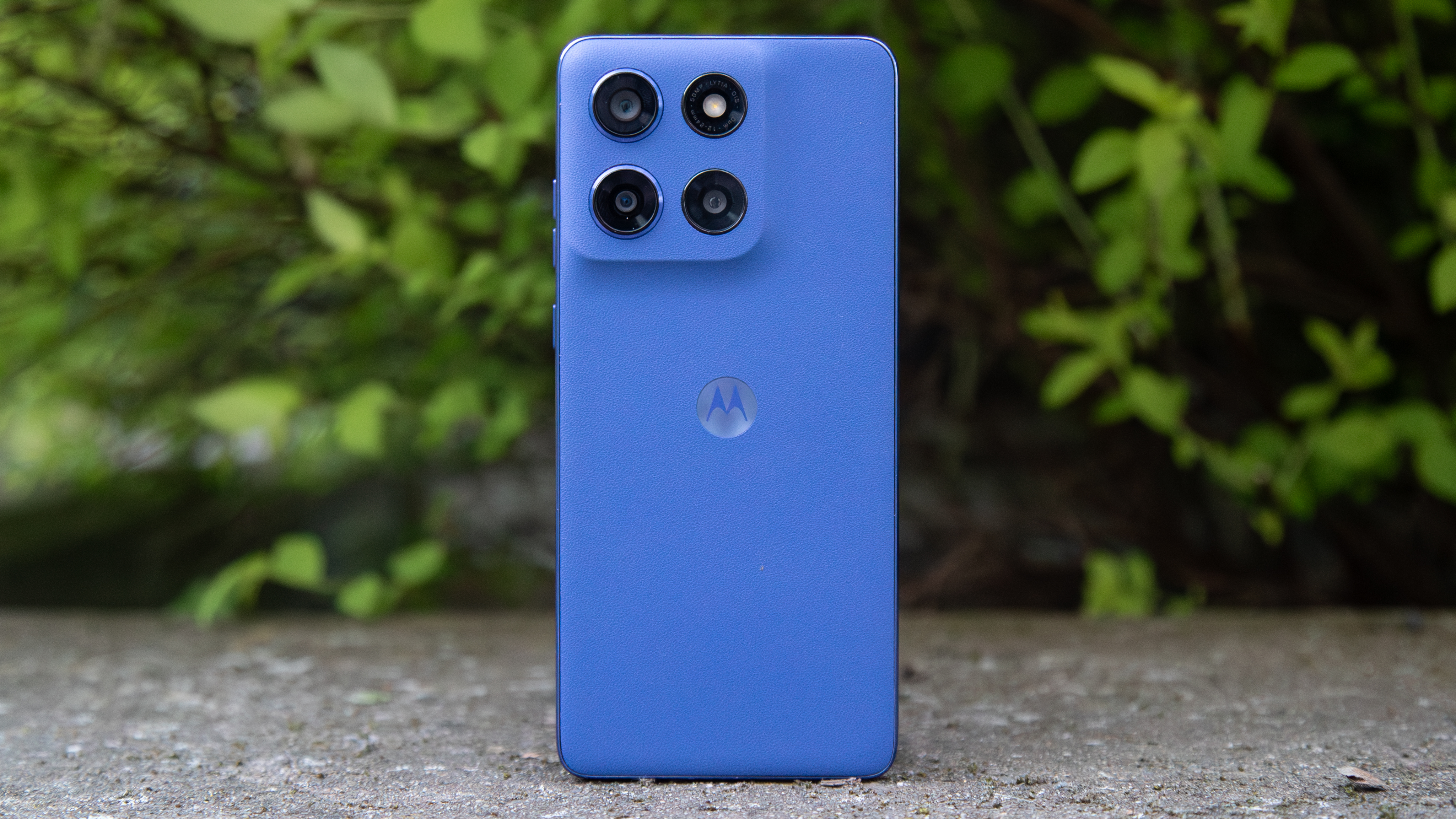
Specifications
Reasons to buy
Reasons to avoid
Motorola has once again outdone itself with the Moto G Stylus 2025. Thanks to its gorgeous vegan leather back panel, this smartphone looks and feels far more premium than what its affordable price tag might have you believe. Under the hood, you get an updated Qualcomm Snapdragon 6 Gen 3 SoC paired with 8GB of RAM, so everyday tasks like web browsing and even casual gaming work with little to no issues. There's also 256GB of internal storage, as well as an expansion slot that can take up microSD cards of up to 1TB in size. The phone finally gets proper a IP68 rating for surviving the elements.
As the name suggests, the biggest standout feature is its integrated stylus, which lets you doodle, jot down notes, and do a lot more with ease. Motorola claims the new stylus is 6.4X more responsive than before. It works perfectly with the smartphone's 6.7-inch AMOLED screen, which comes with a Super HD resolution of 1220x2712 pixels and a 120Hz refresh rate. You get all standard connectivity and I/O features including dual-band Wi-Fi, a 3.5mm audio port, and even NFC for contactless payments. The whole package is backed by a 5,000mAh battery with 68W fast wired charging.
Best value
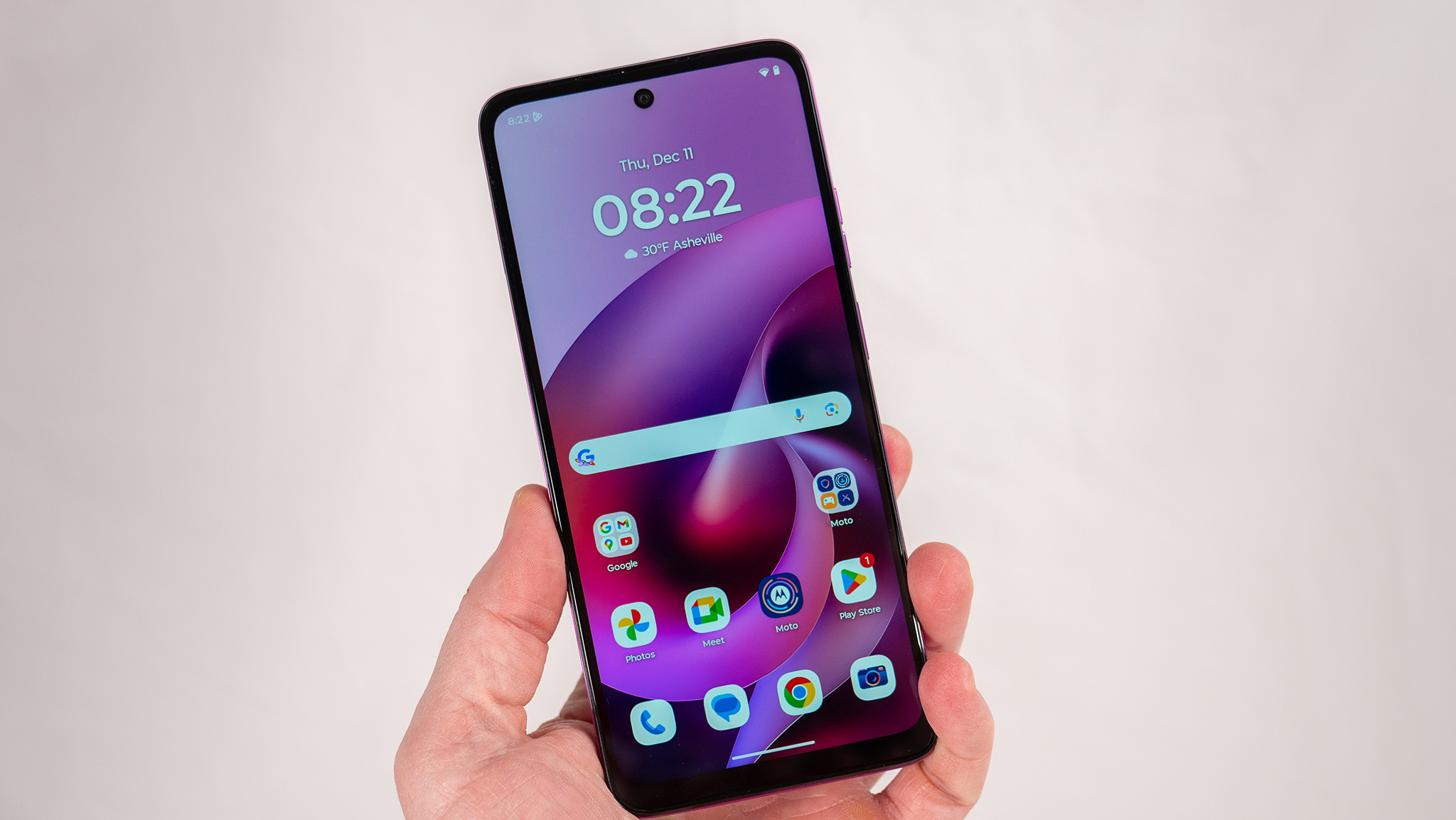
Specifications
Reasons to buy
Reasons to avoid
If you’re looking for a simple 5G phone that gets the job done, the new Moto G 2026 is worth a look with a large 6.7-inch HD+ display and 120Hz refresh rate. The display sits beneath a sheet of Gorilla Glass 3 giving it protection from minor drops. It even has a fingerprint reader on the side making it quick to unlock your phone without sacrificing security. It’s powered by a Mediatek Dimensity 6300 SoC with 4GB of RAM, which isn’t great for 3D gaming, but is reasonably fast for basic messaging apps, social media, video calling, and taking photos.
Charging is relatively quick at 30W, and you have a large 5,200mAh battery that's sure to last multiple days. The rear camera has a 50MP sensor that can take decent enough photos in enough light, but won’t blow you away. At this price, however, you’re still getting solid results that are more than sufficient for sharing with your friends.
Best foldable
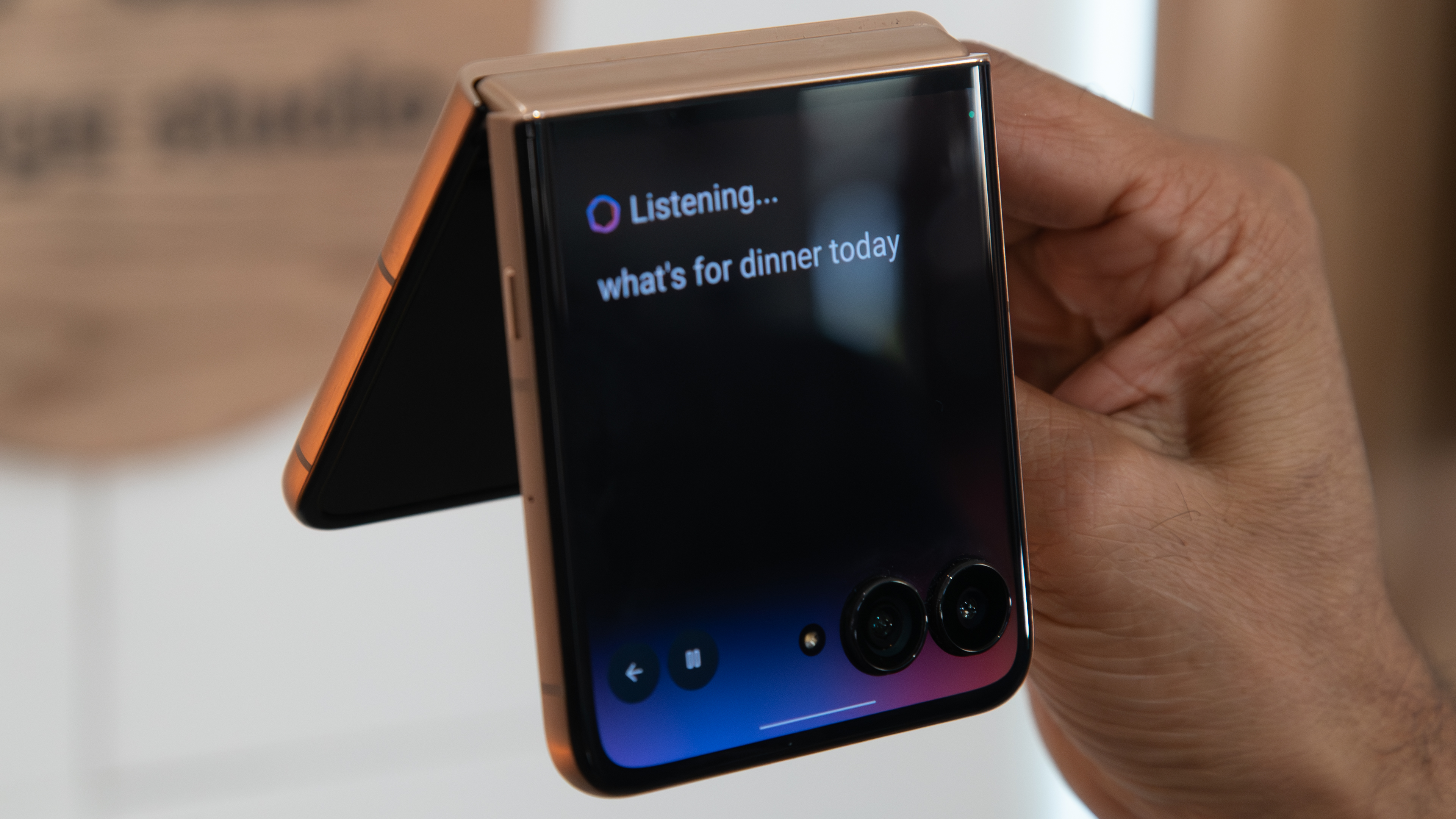
Specifications
Reasons to buy
Reasons to avoid
Loaded to the gills with awesomeness, the Motorola Razr Ultra 2025 is a new addition to the series, making it the company's flagship offering. It is the best foldable smartphone the company has made to date. It sports two stunning new finishes of Alcantara and wood. Up front, you get the same 4.0-inch cover screen but with higher brightness and Gorilla Glass Ceramic.
Flip open the Motorola Razr Ultra 2025, and you'll be greeted with a slightly larger 7.0-inch LTPO AMOLED panel that also has a 165Hz refresh rate. Driven by a Qualcomm Snapdragon 8 Elite SoC, the smartphone features 16GB of RAM and 512GB of onboard storage, which means it should effortlessly handle everything from multitasking to some gaming. You get Android 15 out of the box, and the software experience is further enhanced by thoughtful additions from Motorola, going a long way in making this arguably the best flip phone currently available out there.
The phone will go on sale on Mat 15, while pre-orders begin on May 7. The Ultra will set you back a hefty $1,299 for the sole variant on offer. The Ultra's secret weapon is the new AI key which can be used to launch Moto AI. We've only spent a little time with the Ultra and we're already very impressed. We'll have more details in our full review, coming soon.
Best for productivity
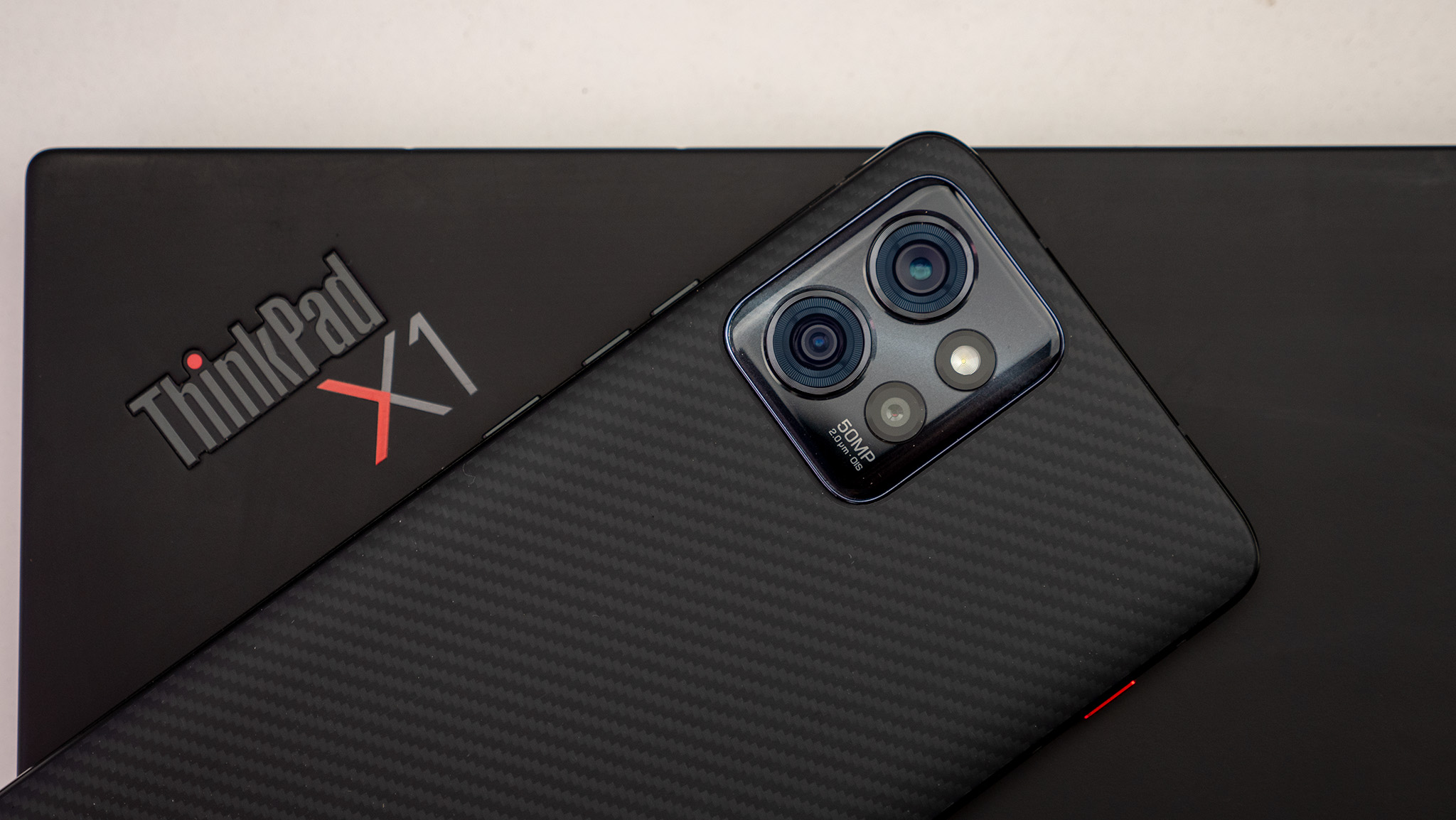
Specifications
Reasons to buy
Reasons to avoid
The ThinkPhone from Motorola borrows its branding from Lenovo and has worked with the PC maker to make the phone integrate with PCs. This is a phone targeted at business users, and its PC integration allows you to use it as a webcam, instantly enable hotspot data, and even stream apps to your PC. Even if you’re not interested in those computer tie-ins, you still get a sleek phone with plenty of grip on the housing. Battery life is strong from the 5,000mAh battery and 68W charging with an included charge.
The phone is powered by the still fast Snapdragon 8+ Gen 1 SoC with either 8GB or 12GB of storage. The display is a 6.6-inch OLED panel with a 144Hz refresh rate under a sheet of Gorilla Glass Victus. Naturally, 5G is supported with fast 6GHz Wi-Fi 6E also included. Our ThinkPhone review also notes that this phone will receive Android updates through Android 16 with security updates through 2027. If you’re looking for a phone to help streamline your workflow with years of support, the ThinkPhone could be what you’ve been waiting for.
Best battery life
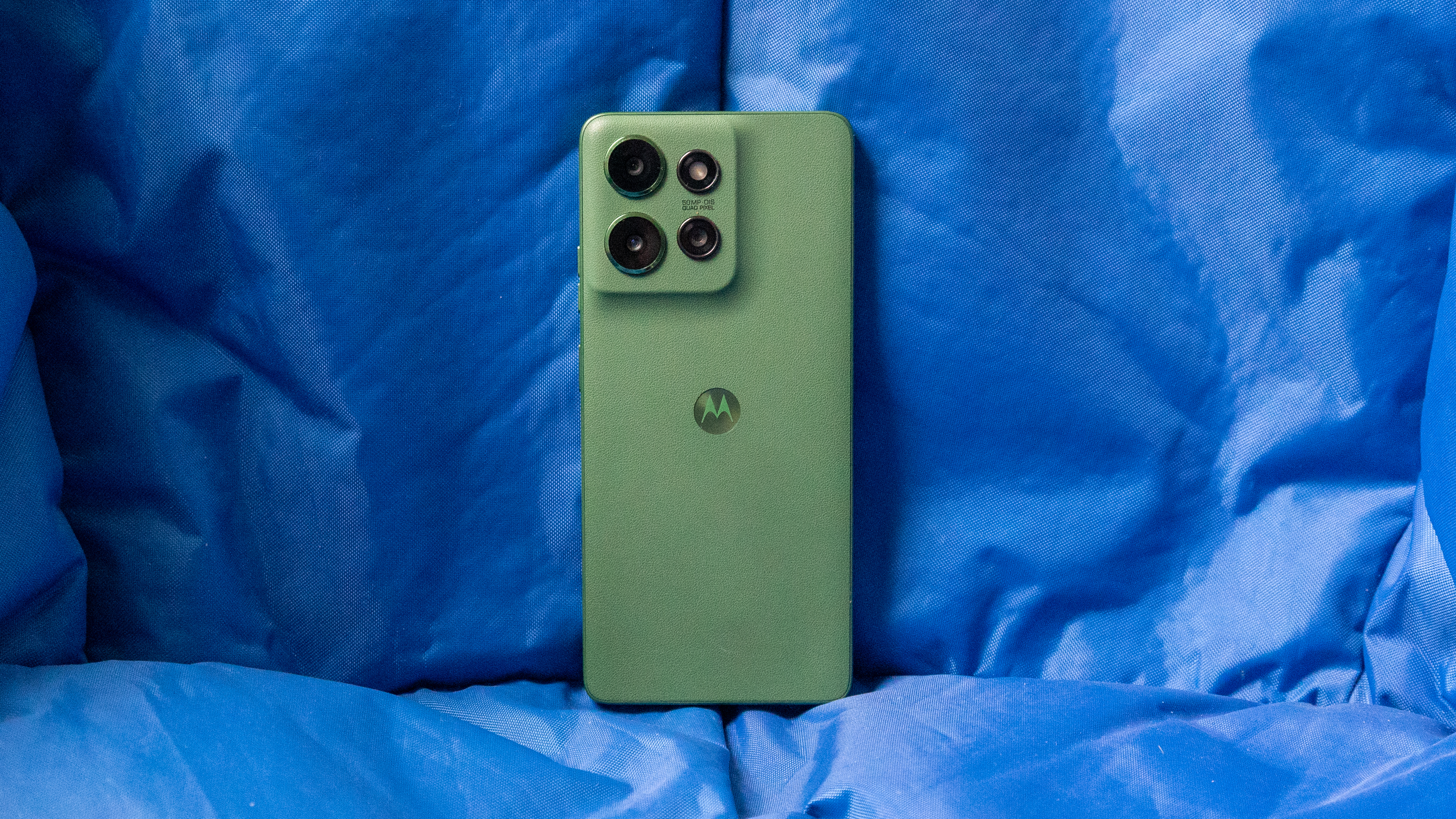
Specifications
Reasons to buy
Reasons to avoid
The Moto G Power 2025 is a lot of phone for your money. The new refresh gets an IP68/IP69 certification, which is pretty darn impressive for $400. It's powered by the MediaTek Dimensity 6300 SoC, which ironically is a bit of a downgrade from its predecessor. As a result, there is a bit of sluggishness in Android 15 but it's not constant.
The 5,000mAh battery is quite impressive, and you even get 30W wired charging and 15W wireless charging. Unfortunately, a 30W charger isn't included in the box, so if you want full charging speeds, you'll want to pick up one of the best USB-C chargers. Overall, this is a strong pick for a mid-range device with sub-6 5G support on most carriers.
Even though the Moto G Power 2026 has been launched, it's not too different from the 2025 model. The latter now retails for under $200, making it even better value than before.
Best value foldable
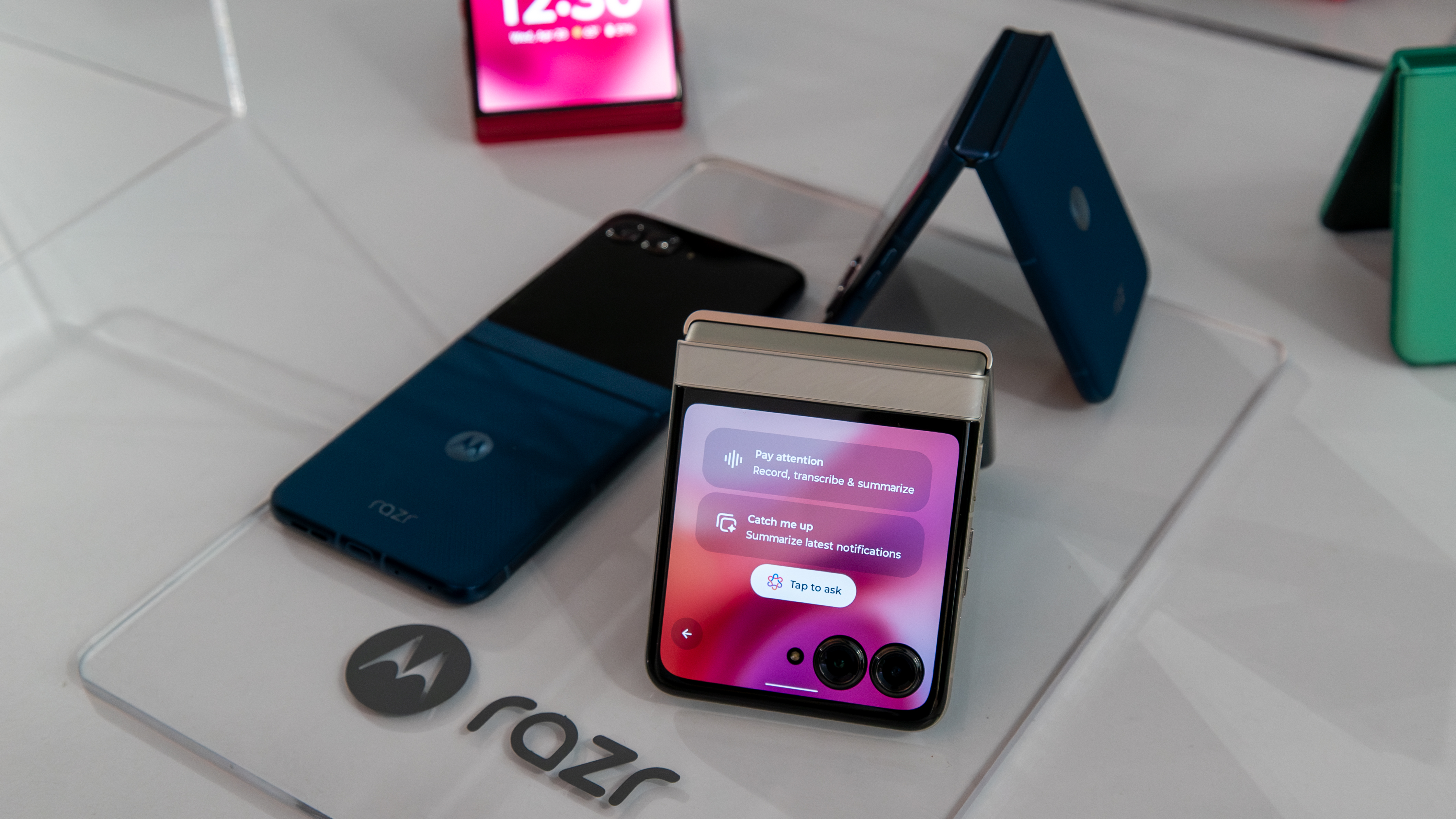
7. Motorola Razr 2025
Our expert review:
Specifications
Reasons to buy
Reasons to avoid
Folding phones have typically been prohibitively expensive with overkill hardware and over-the-top designs. The Motorola Razr 2025 breaks that myth by being one of the best affordable fllip phones to buy in the U.S.. It comes in a sleek clamshell folding form factor with a large 6.9-inch internal display and brand new Pantone colors.
The smartphone packs an improved Mediatek Dimensity 7400X chipset and a highly useable 3.6-inch outer display. The battery capacity of the Razr 2025 has been bumped up to 4,500mAh, which means you get more up-time between charges. For an entry model, it's refreshing to see Motorola give it an IP48 rating, which makes it as durable as the Razr Ultra 2025.
Best cheap Moto
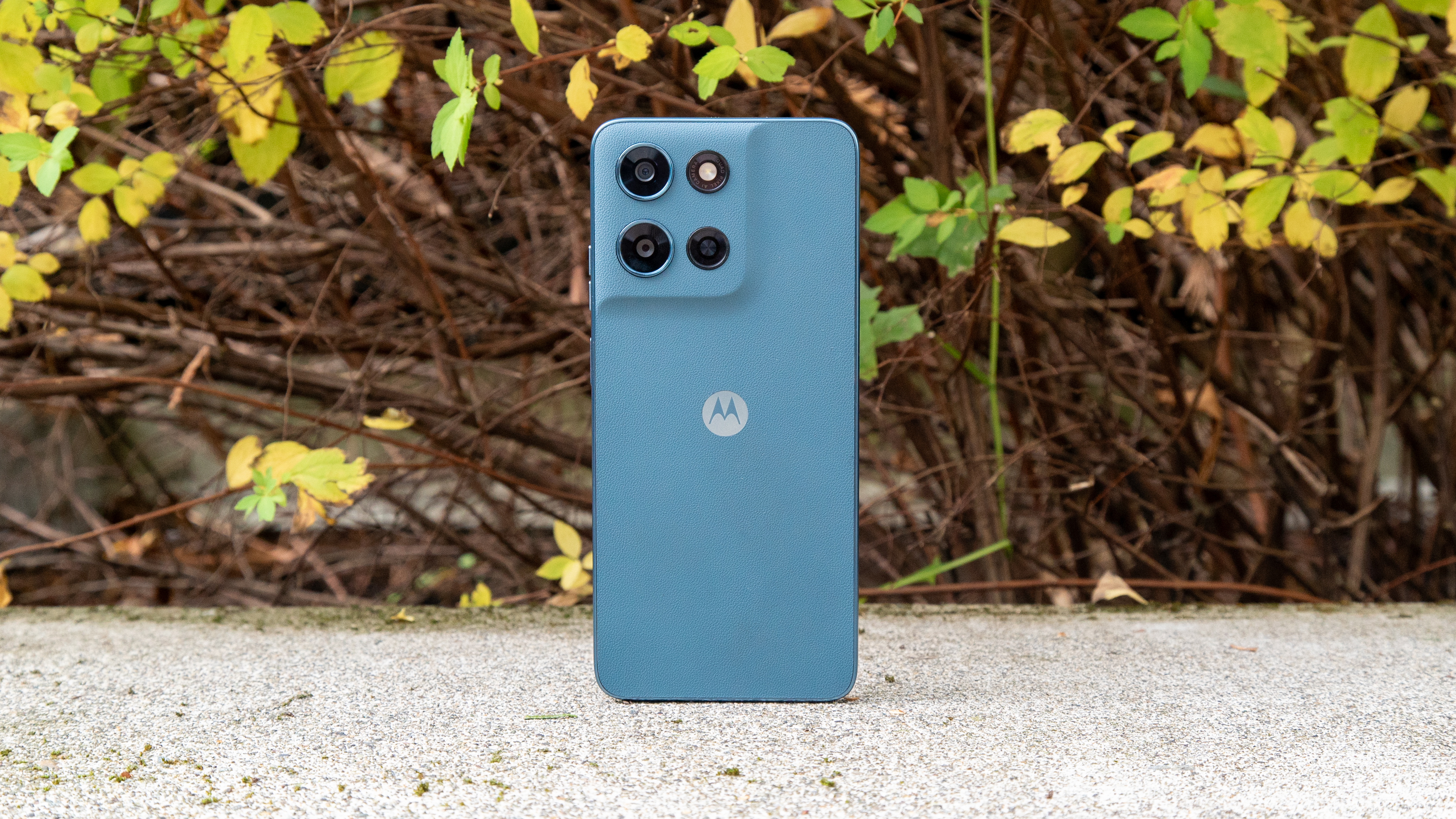
Specifications
Reasons to buy
Reasons to avoid
The Moto G Play 2026 doesn't do anything special, besides being a generally good, cheap smartphone for under $200. This phone has a reasonably large screen at 6.7 inches with a 120Hz refresh rate, though the resolution is conservative. Still, it more than gets the job done and is one of the reasons for this phone's battery endurance. Another reason is the MediaTek SoC under the hood with 4GB of RAM.
The biggest reason for this phone's strong battery life is the large 5,200mAh battery with 18W wired charging. Wireless charging is absent from this phone, but that isn't surprising at this price. When it comes to software, the phone launched with Android 16 with Motorola promising two OS updates. With 5G support for the three major carrier, just about anyone can use it with their phone plan.
How to choose
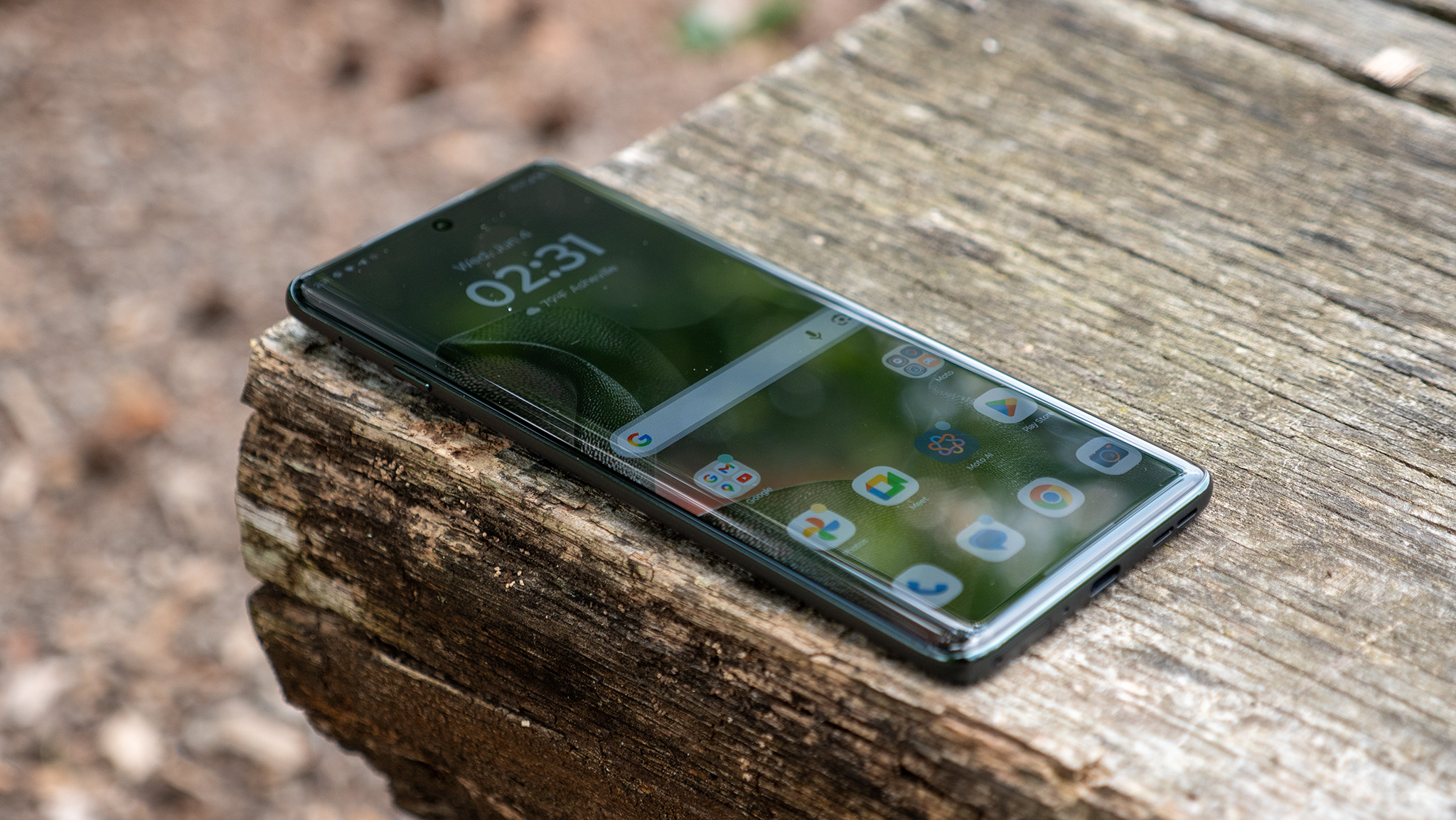
If you're looking at Motorola's phone lineup, especially the Moto G phones, it can be hard to tell them apart. Motorola's phones are split into three main categories with premium devices like the Moto Edge and ThinkPhone, then the Razr folding phones, followed by the budget-oriented Moto G series. While the Moto Edge and Thinkphone are good phones, if you're shopping for something high-end, you might find some of the other best Android phones to be a better value, especially if you're getting it from a carrier.
The Razr series is known for its striking designs and relatively affordable prices. The new Motorola Razr 2025, for example, is one of the cheapest and best folding phones you can get. Keep in mind, that while flip phones of the past were known for durability, the same can't be said for folding flip phones like the Razr. The internal screen is large and surprisingly high-quality but is soft and easily scratched, so it's more at home in an office than the job site. Folding phones can also be more difficult, and much more expensive, to repair if you do damage that screen.
The Moto G series is updated every year like clockwork with the date following the name. Make sure you're picking the latest model available because, while Motorola has promised updates for most of its phones, it's so far been slow to deliver, and doesn't match up to the multiple OS updates offered by Google and Samsung.
Make sure your Moto G phone has the hardware features you need, like NFC for payments, or fast charging as these specs can vary. If you need fast charging, the Moto G Power 2025 supports up to 30W, while others, especially 2023 models, can be significantly slower. While these phones can take some competent photos in decent lighting, if you're a prolific phone photographer, you'll be happy you spent a bit more on a higher-end Moto or even something like a Pixel A series phone.
The runner-up includes a stylus
Why you can trust Android Central
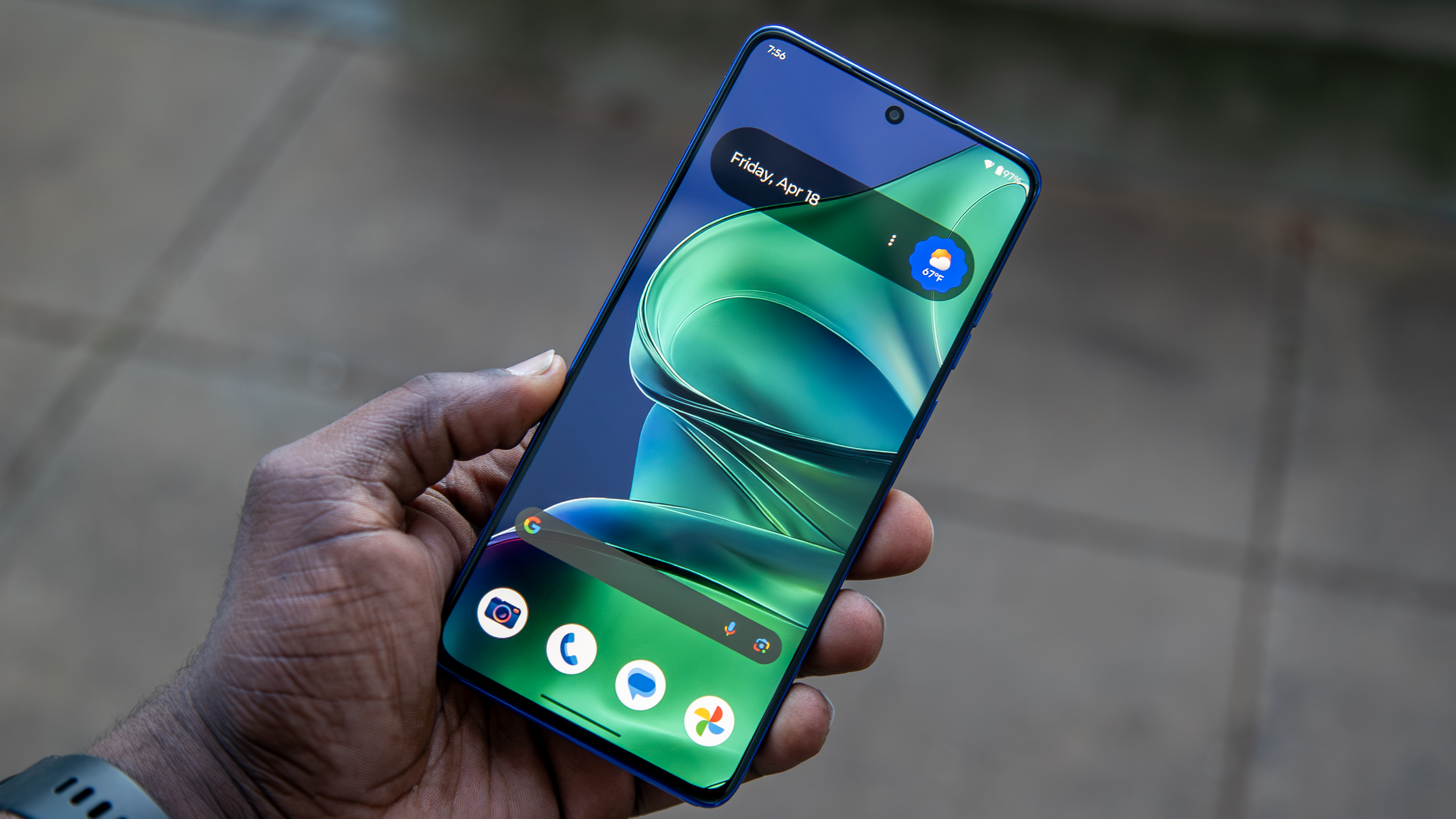
Out of all the Motorola phones currently available, the Moto G Stylus 2025 is a great pick for those looking for precision input. It has solid specs, features, and price are darn-near perfect given how affordable and good-looking the phone is, making it a clear winner in our eyes, particularly among other budget Android phones.
The sleek, elegant design paired with a built-in stylus and useful gestures proves you don't need to spend a lot to get the premium Motorola experience. You also get Android 15 straight out of the box, alongside a big 5,000mAh battery and the very capable Snapdragon 6 Gen 3 SoC. Did we mention that it also has a headphone jack and even goodies like wireless charging and NFC?
If you're looking for the best overall Motorola phone, the Motorola Edge Plus still stands out with its powerful Snapdragon 8 Gen 2 SoC, fast 68W charging, and solid camera system. The phone is even set to get three OS updates with four years of security updates. If you are looking for a flagship phone from Motorola, the Edge Plus is your best bet.
Get the latest news from Android Central, your trusted companion in the world of Android

Derrek is the managing editor of Android Central, helping to guide the site's editorial content and direction to reach and resonate with readers, old and new, who are just as passionate about tech as we are. He's been obsessed with mobile technology since he was 12, when he discovered the Nokia N90, and his love of flip phones and new form factors continues to this day. As a fitness enthusiast, he has always been curious about the intersection of tech and fitness. When he's not working, he's probably working out.
- Roydon CerejoContributor
- Andrew MyrickSenior Editor — Smartphones (North America), Chromebooks & Tablets
